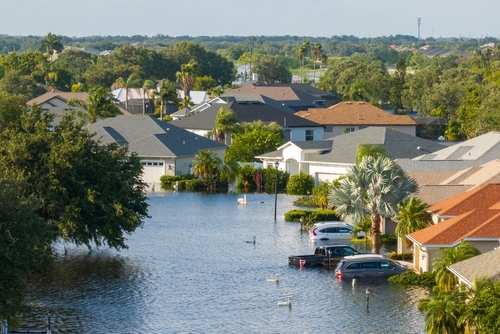Facing a Property Insurance Claim Denial After Houston’s Recent Storms?
In the aftermath of severe weather events that have battered Texas in recent years, many Houston homeowners are discovering an alarming reality: approximately 68% of property insurance claims are initially denied. This staggering rejection rate isn’t random—insurance companies employ specific tactics to minimize payouts, especially following widespread disasters. If you’re among the thousands of Houstonians dealing with a denied claim after the 2024 derecho or other severe weather events, understanding why these denials happen is the first step toward getting the compensation you deserve.
Don’t let a denied insurance claim leave you high and dry. Contact JCE Law Group today to turn the tide in your favor. Call us at 504-754-5884 or contact us online to get the ball rolling on your path to rightful compensation.

Understanding Your Rights Under Texas Property Insurance Laws
Texas insurance laws provide significant protections for policyholders, though many insurance companies count on you not knowing these rights. Under the Texas Insurance Code, insurers must process claims promptly, conduct thorough investigations, and provide clear explanations for denials. They have 15 days to acknowledge your claim, 45 days to accept or deny it (which can be extended to 90 days with proper notice), and 5 business days to pay once a settlement is reached. Texas law also recognizes “bad faith” insurance practices—when an insurer unreasonably delays, denies or underpays valid claims. Recognizing when your insurer has crossed these legal boundaries is crucial to challenging their decisions effectively. Recent property insurance disputes in Texas have also established that insurance companies must consider all available information, not just evidence that supports denial.
Why Property Insurance Claims Get Denied: Understanding the Process
When severe weather strikes, insurance companies activate specific protocols designed to process large volumes of claims quickly, often prioritizing efficiency over accuracy. Following the 2024 derecho that devastated parts of Houston, insurance companies were overwhelmed with claims, creating an environment where denials became the default response. Understanding the timeline and common reasons for claim denial can help you navigate this frustrating process more effectively:
-
Policy exclusions and limitations: Many homeowners don’t realize that standard policies exclude certain types of water damage, particularly flooding, which requires separate coverage. After Houston’s recent storms, approximately 43% of denials cited exclusions that homeowners weren’t aware existed in their policies.
-
Failure to document damage properly: Insurance adjusters often spend less than 30 minutes evaluating property damage after major disasters, missing critical issues. Homeowners who document thoroughly with photos, videos, and detailed notes have a 70% higher chance of claim approval.
-
Missed deadlines: Most policies require prompt damage reporting within 30-60 days. After the 2024 storms, claims filed more than 45 days after the event faced significantly higher denial rates.
-
Pre-existing damage allegations: Insurers frequently claim damage existed before the storm—a tactic that increased by 35% following Houston’s recent severe weather events.
-
Inadequate maintenance arguments: Insurance companies often deny claims by asserting the damage resulted from neglected maintenance rather than storm impact.
How a Property Insurance Lawyer Can Turn Your Claim Denial Around
Having skilled legal representation can dramatically change your outcome when facing a denied property insurance claim. A property insurance lawyer understands the technical language in your policy, can identify when insurers are misapplying exclusions and knows how to counter common denial tactics. At JCE Law Group, we’ve observed that professionally represented claims are three times more likely to be approved upon appeal than those handled by homeowners alone. Property insurance lawyers bring crucial advantages: they understand the evidence needed to overturn denials, can bring in independent experts to counter insurance adjusters’ assessments, and know when an insurer is violating Texas insurance regulations. Most importantly, they shift the power dynamic—insurance companies respond differently when they know legal professionals scrutinize their decisions and are prepared to pursue litigation if necessary.
The Hidden Impact of Mass Disaster Events on Insurance Claim Handling
Major weather disasters fundamentally change how insurance companies process claims. After catastrophic events like the 2024 derecho that swept through Houston, insurers activate “catastrophe response teams” that operate under different protocols than normal claims departments. These teams often employ third-party adjusters who may lack familiarity with local building codes and construction costs, leading to systematic undervaluation of damages. Insurance companies also implement statistical models that flag certain types of claims for automatic scrutiny or denial, especially when facing thousands of claims simultaneously. Understanding these behind-the-scenes processes explains why claim denials spike dramatically following weather disasters and why the same damage that might be covered during normal times gets rejected during catastrophe response periods.
The “Deny First, Negotiate Later” Strategy
Insurance companies often employ a strategic approach we call the “deny first, negotiate later” tactic, particularly after widespread disasters. This approach is designed to reduce their immediate financial exposure while banking on the fact that many policyholders will either give up or accept significantly lower settlements. We’ve seen cases where initial claim denials were eventually settled for 300-400% more after proper legal intervention. In our experience, even the most reputable insurance companies can resort to these tactics when facing the financial pressure of thousands of simultaneous claims following events like Houston’s recent severe storms.
Common Types of Property Damage Being Denied After Recent Houston Storms
Following Houston’s severe weather events in 2024, certain types of property damage have faced particularly high denial rates. Roof damage claims lead the list, with insurance companies frequently attributing shingle damage to “wear and tear” rather than wind events despite clear evidence of storm impact. Water intrusion claims face similar challenges, with insurers drawing fine distinctions between “flood” damage (often excluded) and “water damage” (potentially covered). Foundation damage claims are routinely denied based on allegations that the issues pre-dated the storm, even when homeowners report no prior problems. Understanding these specific denial patterns can help homeowners better prepare their claims and anticipate the types of evidence they’ll need to overcome insurer objections.
Proving Storm-Related Damage vs. Pre-existing Conditions
One of the most challenging aspects of property insurance claims is proving that damage resulted directly from the recent storm rather than from gradual deterioration or previous incidents. Insurance adjusters are trained to identify signs that might indicate pre-existing issues, and they’ll use these observations to justify claim denials. Effective strategies to counter these arguments include maintaining regular home inspection records, documenting your property’s condition with dated photographs before storm seasons, obtaining weather reports showing the severity of the specific event affecting your area, and securing independent expert assessments that can confirm damage patterns consistent with recent storm activity. Timing is also crucial—documenting damage immediately after the storm provides stronger evidence of causation than assessments conducted weeks or months later.
Texas-Specific Insurance Requirements After Severe Weather Events
Texas has implemented specific regulations governing insurance companies’ handling claims following declared weather disasters. After major events like the 2024 derecho, the Texas Department of Insurance often issues special directives that temporarily modify standard claim handling requirements. These can include extended reporting deadlines, expedited claim processing requirements, and special provisions for alternative living expenses. Additionally, Texas maintains specific rules about how insurance companies can deploy catastrophe adjusters, including licensing requirements that out-of-state adjusters must meet before handling Texas claims. Understanding these Texas-specific regulations provides homeowners with additional leverage when challenging improper claim denials, especially when insurers fail to comply with these specialized post-disaster requirements.
Ongoing Recovery Challenges One Year After Houston’s Major Storms
One year after the devastating derecho that hit Houston in 2024, many homeowners are still battling with insurance companies over denied or undervalued claims. The recovery timeline for properly settled claims typically ranges from 6-12 months for significant structural damage, but disputed claims can extend this process by years. This prolonged uncertainty creates additional financial strain as temporary repairs fail, alternative living costs mount, and property values potentially decline due to unrepaired damage. The longer a claim remains unresolved, the more challenging documentation becomes, as evidence of the original damage may deteriorate or be altered by subsequent weather events. This reality underscores the importance of addressing claim denials promptly and aggressively, rather than allowing them to linger in prolonged negotiation phases.
Frequently Asked Questions
1. How long must I file a property insurance claim after storm damage in Texas?
In Texas, most insurance policies require you to file a claim “promptly” or within a specific timeframe after the damage occurs—typically between 30 to 60 days. However, your specific policy may have different requirements. Additionally, Texas has a two-year statute of limitations for filing a lawsuit against your insurance company for breach of contract, starting from when your claim was denied. After major disasters, these deadlines are sometimes extended, but you should never delay reporting damage to your insurance company. Document everything immediately and file your claim immediately to avoid potential denial based on late reporting.
2. What qualifies as “bad faith” practices by insurance companies handling Houston property damage claims?
Under Texas law, insurance bad faith occurs when an insurer unreasonably delays, denies or underpays a valid claim. Specific examples include failing to conduct a thorough investigation, misrepresenting policy provisions, refusing to provide a reasonable explanation for denial, delaying payment without valid reason, making lowball offers that don’t reflect actual damage, or using manipulated engineering reports to justify denials. Suppose your insurance company has engaged in these practices after Houston’s recent storms. In that case, you may have grounds for recovering your claim amount and additional damages related to the bad faith conduct.
3. Can a Houston property damage attorney help if my claim was denied months ago?
Yes, a property damage attorney can often still help even if your claim was denied months ago, as long as you’re within the two-year statute of limitations period in Texas. A property insurance lawyer in Houston can review your denial, identify improper practices, gather additional evidence, engage independent experts, and either reopen negotiations or file a lawsuit if necessary. Claims denied 6-12 months ago can often be reversed with proper legal representation. The key is not to wait until you approach the two-year deadline, as building a strong case takes time, especially for complex property damage situations.
4. What evidence do I need to dispute a property insurance claim denial in Houston?
To effectively dispute a claim denial, you’ll need comprehensive documentation including: detailed photographs and videos of all damage from multiple angles, maintenance records showing the property was maintained adequately before the storm, weather reports confirming severe conditions in your specific area, statements from neighbors experiencing similar damage, contractor estimates detailing necessary repairs and costs, any communication with your insurance company, and potentially independent expert assessments from structural engineers or other specialists. A property insurance claim lawsuit in Houston typically succeeds when this evidence clearly contradicts the reasons given for denial in the insurance company’s formal rejection letter.
5. How do Texas property insurance laws protect homeowners after storm damage claim denials?
Texas property insurance laws provide several important protections for homeowners. The Texas Insurance Code requires insurers to acknowledge claims within 15 days, decide within 45 days (extendable to 90 days with notice), and pay approved claims within 5 business days. The Texas Prompt Payment of Claims Act allows for recovery of attorney fees and an 18% penalty interest when insurers delay payments without reasonable cause. The Texas Deceptive Trade Practices Act and Texas Insurance Code also provide remedies for bad faith practices, potentially allowing recovery beyond just your claim amount. These protections are particularly valuable after widespread storm events when insurance companies may be tempted to cut corners in claims processing.
Work with a Property Insurance Lawyer
Working with a qualified lawyer can make the difference between continued frustration and fair compensation when facing a denied property insurance claim after severe weather damage. Property insurance attorneys understand the complex language in your policy, recognize common denial tactics, and know how to build compelling cases that insurance companies can’t easily dismiss. An experienced property insurance lawyer will thoroughly review your policy and claim, identify any potential violations of Texas insurance regulations, engage necessary experts to counter insurance company assessments and develop a strategic approach to negotiations or litigation. JCE Law Group has helped countless homeowners throughout Texas overcome wrongful claim denials and secure the compensation needed to restore their properties properly. Remember that most property insurance lawyers work on a contingency basis, meaning you pay nothing unless they help you recover on your claim.
Don’t let the storm of insurance denials overwhelm you. Reach out to JCE Law Group for a lifeline in navigating your claim. Call us at 504-754-5884 or contact us to start your journey toward rightful compensation.


